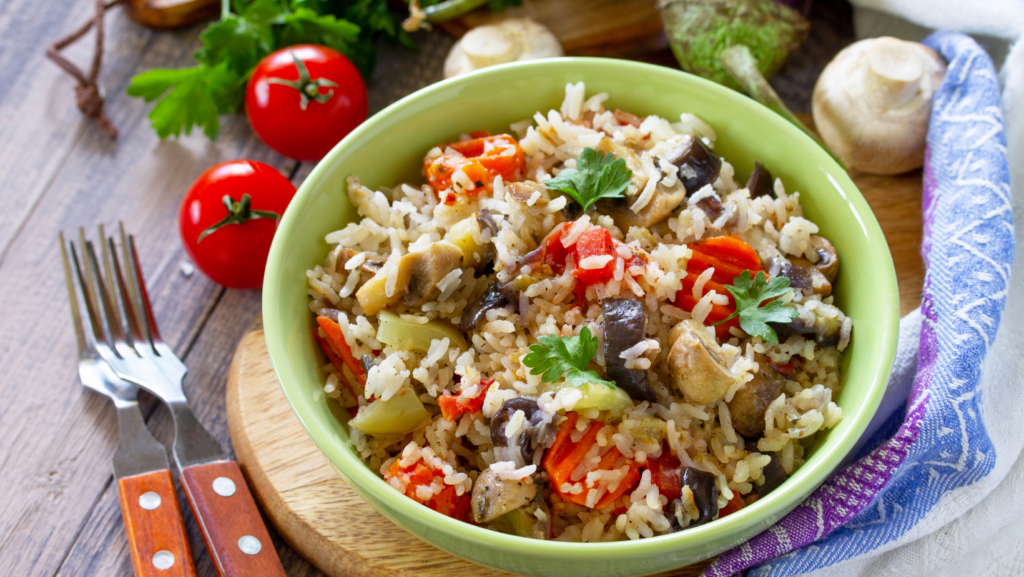Unlocking the secret to weight loss isn’t about chasing fad diets or quick fixes. It’s about understanding the power of nutrition and the role healthy foods play in our wellness journey. This article delves into the science-backed benefits of a healthy diet, specifically geared towards weight loss.
Discover the connection between what you eat and how you feel, and how making smart food choices can help you shed those stubborn pounds. From understanding the basics of a balanced diet to exploring the wonders of superfoods, we’ll guide you through the maze of healthy eating for weight loss.
So, are you ready to transform your plate into your most powerful weapon against weight gain? Let’s dive in and explore the world of nutritious foods that not only satisfy your taste buds but also support your weight loss goals.
Healthy Food:Pfaqwphylni= Weight Loss Diet
 Diving deeper into the connection between nutrition and weight loss, it’s important to understand the role that food plays in shedding excess weight. Armed with this knowledge, altering dietary habits becomes a more manageable task.
Diving deeper into the connection between nutrition and weight loss, it’s important to understand the role that food plays in shedding excess weight. Armed with this knowledge, altering dietary habits becomes a more manageable task.
Choosing the correct foods for weight loss plays a crucial role in achieving desirable outcomes. Not all calories are created equal; for example, consuming 500 calories of broccoli (2.2 kilograms) versus 500 calories of ice cream (125 grams) leads to different physiological responses. While both provide energy, the body benefits from additional fiber and nutrients in broccoli, enhancing feelings of fullness and aiding digestion. With the right food, the journey of weight loss becomes easier to tread, strategic, and more scientifically driven.
A healthy weight loss diet exhibits a number of key traits. Primarily, it emphasizes whole foods, such as vegetables, fruits, lean protein, and whole grains. These foods provide essential nutrients without added sugars or unhealthy fats.
Debunking the Myths around Weight Loss Diets
 In this section, we’ll address common misconceptions associated with weight loss diets, aiming for a deeper understanding of how the right diet aids in shedding excess weight. One popular myth hints at starving as a method for weight loss. Contrary to this belief, starvation can lead to unhealthy outcomes, not weight loss. When an individual starves, the body goes into a survival mode, slowing down metabolism to conserve energy. Consequently, this makes weight loss more difficult. Studies, like one published in the American Journal of Clinical Nutrition, show that starvation diets can lead to muscle mass loss, lower immunity, and disruption in bodily functions. So, instead of starving, following a balanced diet with the right portion sizes, proves beneficial for weight loss.
In this section, we’ll address common misconceptions associated with weight loss diets, aiming for a deeper understanding of how the right diet aids in shedding excess weight. One popular myth hints at starving as a method for weight loss. Contrary to this belief, starvation can lead to unhealthy outcomes, not weight loss. When an individual starves, the body goes into a survival mode, slowing down metabolism to conserve energy. Consequently, this makes weight loss more difficult. Studies, like one published in the American Journal of Clinical Nutrition, show that starvation diets can lead to muscle mass loss, lower immunity, and disruption in bodily functions. So, instead of starving, following a balanced diet with the right portion sizes, proves beneficial for weight loss.
Are All Weight Loss Diets the Same?
A second myth surrounds the notion that all weight loss diets share the same efficacy. Yet, diets differ based on an individual’s nutritional needs, health conditions, metabolism, body type, and more. As an example, The Dietary Guidelines for Americans, 2020-2025 emphasizes on customization of diets for promoting health and preventing chronic diseases. A person with diabetes may follow a diet different from someone with heart disease. It’s essential, therefore, for individuals to consult a registered dietitian or a healthcare professional to choose a diet conducive to their individual health goals.
Components of a Healthy Weight Loss Diet
A healthy weight loss diet consists of a balance between macronutrients, and a sufficient intake of micronutrients and fiber. Let’s delve deeper into these essential components.
Balancing the Macronutrients
 Beliefs surrounding weight loss diets often underscore the significance of macronutrients. These major compounds – proteins, carbohydrates, and fats – serve as the body’s primary sources of energy. Proteins, found in fish, chicken, or tofu, function as the building blocks of the body’s cells, nurturing tissue growth and repair. Regular protein intake boosts metabolic health and keeps you feeling satiated.
Beliefs surrounding weight loss diets often underscore the significance of macronutrients. These major compounds – proteins, carbohydrates, and fats – serve as the body’s primary sources of energy. Proteins, found in fish, chicken, or tofu, function as the building blocks of the body’s cells, nurturing tissue growth and repair. Regular protein intake boosts metabolic health and keeps you feeling satiated.
Carbohydrates primarily serve as the body’s prime fuel, providing the energy necessary for bodily functions. Whole grain products, like oatmeal, and fruits, such as apples, supply bodies with essential carbohydrates.
Fats, contrary to common misconceptions, hold a crucial place in a balanced diet. Categories of fats, unsaturated and saturated, exist, with unsaturated fats (found in olive oil, avocados) supporting heart health and providing energy.

